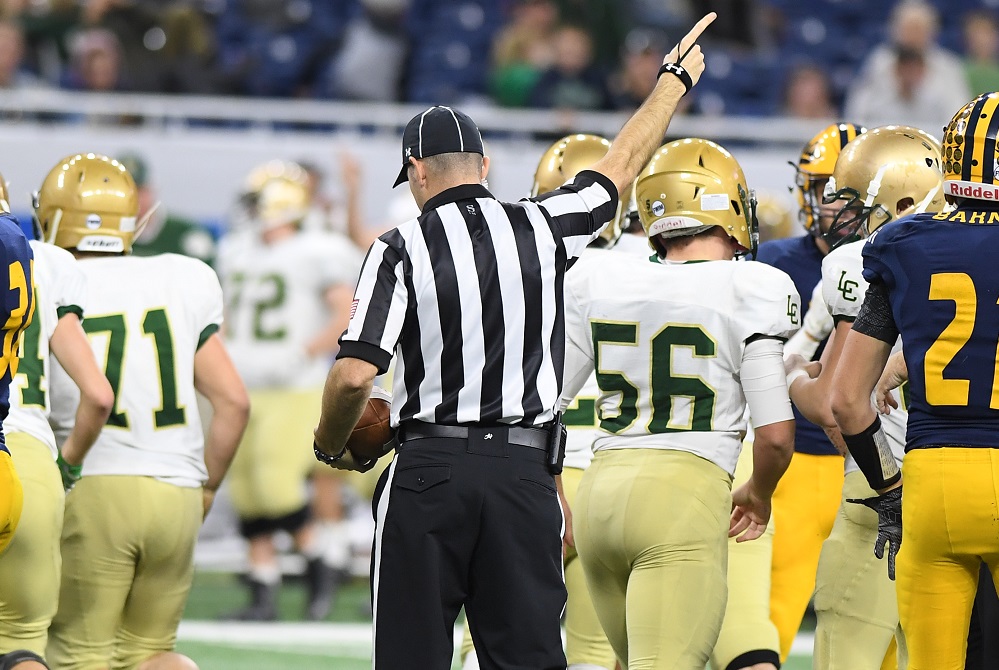
Be the Referee: Ball Hits Soccer Referee
October 1, 2020
This week, MHSAA Assistant Director Brent Rice explains a a change in soccer rules for when a ball makes contact with an official during game play.
Be The Referee is a series of short messages designed to help educate people on the rules of different sports, to help them better understand the art of officiating, and to recruit officials.
Below is this week's segment - Ball Hits Soccer Referee - Listen
We’ve all seen it before in a soccer game. A ball is kicked up the field, but ricochets off an official and leads to a goal scoring opportunity.
In the past, an official would swing his arms to indicate “play on.” A new rule, though, would stop play immediately and restart with a Drop Ball.
New in high school soccer for the 2020-21 school year, when a ball touches the referee which leads to a promising attack, the referee must blow his whistle to stop play and start with a Drop Ball. He should ALSO give a Drop Ball in two other instances: when the ball hits the official and possession changes or when a ball hits the official and goes into the goal.
Past editions
9/24: Clocking the Ball from the Shotgun - Listen

Be the Referee: Pass Interference
By
Geoff Kimmerly
MHSAA.com senior editor
September 2, 2021
This week, MHSAA officials coordinator Sam Davis explains the differences in high school pass interference rules from those at the college and pro levels.
Be The Referee is a series of short messages designed to help educate people on the rules of different sports, to help them better understand the art of officiating, and to recruit officials.
Below is this week's segment – Pass Interference – Listen
One of the big differences between high school football and the college or pro game is how pass interference is called.
In high school, there is no such thing as an “uncatchable” pass. If there is illegal contact by the defender while the ball is in the air, that’s pass interference, no matter where the pass ultimately ends up.
Also – in high school – a defender can “face guard” as long as no contact is made with the receiver. That is not pass interference, even if the defender does not look back for the ball.
Both of those interpretations differ from the college and pro game. Both (of those) levels have an uncatchable exception, and neither allows for face guarding.
Keep that in mind the next time you think you’ve spotted pass interference at the high school level.
Previous editions
Aug. 26: Protocols and Mechanics – Listen

